Related Research Articles
The silent majority is an unspecified large group of people in a country or group who do not express their opinions publicly. The term was popularized by U.S. President Richard Nixon in a televised address on November 3, 1969, in which he said, "And so tonight—to you, the great silent majority of my fellow Americans—I ask for your support." In this usage it referred to those Americans who did not join in the large demonstrations against the Vietnam War at the time, who did not join in the counterculture, and who did not participate in public discourse. Nixon, along with many others, saw this group of Middle Americans as being overshadowed in the media by the more vocal minority.

A die-in, sometimes known as a lie-in, is a form of protest in which participants simulate being dead. Die-ins are actions that have been used by a variety of protest groups on topics such as animal rights, anti-war, against traffic violence, human rights, AIDS, gun control, racism, abortion, and environmental issues. Often, protestors occupy an area for a short time instead of being forced to leave by the police.
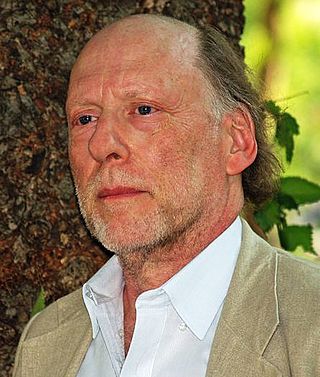
Todd Alan Gitlin was an American sociologist, political activist and writer, novelist, and cultural commentator. He wrote about the mass media, politics, intellectual life and the arts, for both popular and scholarly publications.
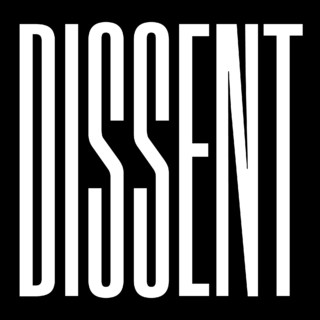
Dissent is an American Left intellectual magazine edited by Natasha Lewis and Timothy Shenk and founded in 1954. The magazine is published by the University of Pennsylvania Press on behalf of the Foundation for the Study of Independent Social Ideas. Former co-editors include Irving Howe, Mitchell Cohen, Michael Walzer, and David Marcus.
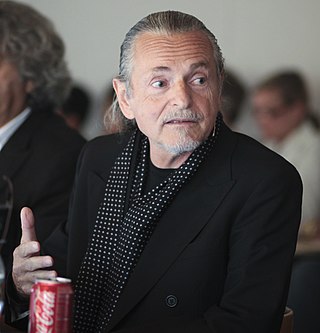
Krzysztof Wodiczko is a Polish artist known for his large-scale slide and video projections on architectural facades and monuments. He has realized more than 80 such public projections in Australia, Austria, Canada, England, Germany, Holland, Ireland, Israel, Italy, Japan, Mexico, Poland, Spain, Switzerland, and the United States.

Arthur Ocean Waskow is an American author, political activist, and rabbi associated with the Jewish Renewal movement.
A teach-in is similar to a general educational forum on any complicated issue, usually an issue involving current political affairs. The main difference between a teach-in and a seminar is the refusal to limit the discussion to a specific time frame or a strict academic scope. Teach-ins are meant to be practical, participatory, and oriented toward action. While they include experts lecturing on their area of expertise, discussion and questions from the audience are welcome, even mid-lecture. "Teach-ins" were popularized during the U.S. government's involvement in Vietnam. The first teach-in, which was held overnight at the University of Michigan in March 1965, began with a discussion of the Vietnam War draft and ended in the early morning with a speech by philosopher Arnold Kaufman.
Cecil Bassett Moore was an American lawyer, politician and civil rights activist who served as president of the Philadelphia NAACP chapter and as a member of Philadelphia's city council. He led protests to desegregate Girard College.

Opposition to United States involvement in the Vietnam War (before) or anti-Vietnam War movement (present) began with demonstrations in 1965 against the escalating role of the United States in the Vietnam War and grew into a broad social movement over the ensuing several years. This movement informed and helped shape the vigorous and polarizing debate, primarily in the United States, during the second half of the 1960s and early 1970s on how to end the war.
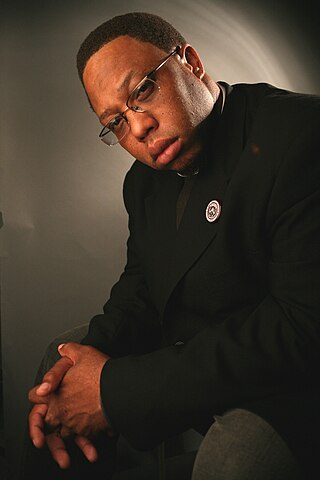
Lennox Yearwood, Jr. is a minister and community activist who is also an influential member of political hip hop. Yearwood currently serves as president of the Hip Hop Caucus, a national nonprofit, nonpartisan organization that empowers young people to participate in elections, policymaking and service projects. Yearwood has led or been involved in a number of high-profile campaigns to engage young voters, as well as working on human rights issues in the Gulf Coast region after Hurricane Katrina.

Vietnam Veterans Against the War (VVAW) is an American tax-exempt non-profit organization and corporation founded in 1967 to oppose the United States policy and participation in the Vietnam War. VVAW says it is a national veterans' organization that campaigns for peace, justice, and the rights of all United States military veterans. It publishes a twice-yearly newsletter, The Veteran; this was earlier published more frequently as 1st Casualty (1971–1972) and then as Winter Soldier (1973–1975).
James Edward Orange, also known as "Shackdaddy", was a leading civil rights activist in the Civil Rights Movement in America. He was assistant to Martin Luther King Jr. in the civil rights movement. Orange joined the civil rights marches led by King and Ralph Abernathy in Atlanta in 1963. Later he became a project coordinator for Southern Christian Leadership Conference, drawing young people into the movement.

Philadelphia Free Press was a 1960s era underground newspaper published biweekly in Philadelphia, Pennsylvania from 1968 to 1972. Originally launched at Temple University in May 1968 as the monthly Temple Free Press, it separated from Temple and became the Philadelphia Free Press in September 1968.
"If You Miss Me at The Back of the Bus" was a song written by Charles Neblett and recorded by Pete Seeger on his album We Shall Overcome in 1963. The song was written in response to attempts to desegregate a public swimming pool in Cairo, Illinois, after a young African-American man drowned while swimming in a local river due to the pool not allowing any African-Americans to use it. The song depicts the attitude of the African-American community towards the Civil Rights Movement during the 1960s. In his book with Bob Reiser, Everybody Says Freedom, Seeger commented that people would improvise new lyrics to the song to reflect on various situations. The song's popularity grew after it began to be used as one of the anthems for the civil rights movement.

An anti-war movement is a social movement, usually in opposition to a particular nation's decision to start or carry on an armed conflict, unconditional of a maybe-existing just cause. The term anti-war can also refer to pacifism, which is the opposition to all use of military force during conflicts, or to anti-war books, paintings, and other works of art. Some activists distinguish between anti-war movements and peace movements. Anti-war activists work through protest and other grassroots means to attempt to pressure a government to put an end to a particular war or conflict or to prevent it in advance.

Charles E. "Charlie" Cobb Jr. is a journalist, professor, and former activist with the Student Nonviolent Coordinating Committee (SNCC). Along with several veterans of SNCC, Cobb established and operated the African-American bookstore Drum and Spear in Washington, D.C. from 1968 to 1974. Currently he is a senior analyst at allAfrica.com and a visiting professor at Brown University.
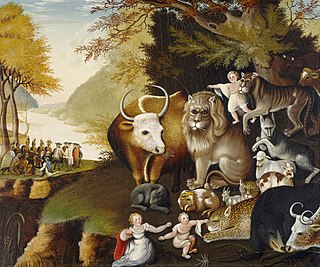
Pacifism has manifested in the United States in a variety of forms, and in myriad contexts. In general, it exists in contrast to an acceptance of the necessity of war for national defense.

Alfred Fabian "Al" Young (1925–2012) was an American historian. Young is regarded as a pioneer in the writing of the social history of the American Revolution and was a founding editor of the academic journal Labor: Studies in Working-Class History of the Americas.

Patrick Reinsborough is an American writer, activist, social change theorist and practitioner. He is the co-author of Re:Imagining Change: How to Use Story-based Strategy to Win Campaigns, Build Movements and Change the World and contributor to social movement anthologies including Globalize Liberation: How to Uproot the System and Build a Better World and Beautiful Trouble: A Toolbox for Revolution.
References
- 1 2 3 "This Month's Featured History Specialist: Ralph Young, Temple University" (PDF). The AIHE Gazette. June 2007. Retrieved 19 December 2014.
- 1 2 Dale, Maryclaire (20 October 2004). "At College Teach-In, Iraq Veteran Earns Respect of Dissenters". Park City Daily News . Associated Press . Retrieved 13 December 2014.
- ↑ "Ralph Young". National Constitution Center . Retrieved 7 December 2014.
- 1 2 Timpane, John (21 October 2001). "In Occupy movement, many voices, interconnected". The Philadelphia Inquirer . Philly.com. Retrieved 6 December 2014.